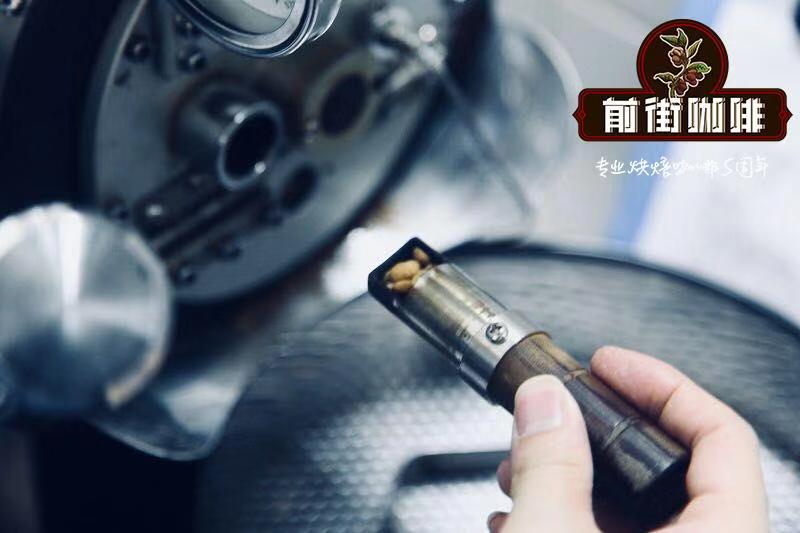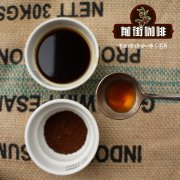African Kenyan coffee bean brewing parameters teach Kenyan AA how to make it sweeter

Professional coffee knowledge exchange more coffee bean information please follow the coffee workshop (Wechat official account cafe_style)
In the 1930s, Scott Labs was commissioned by the Kenyan government to select the varieties suitable for the country. After numbering and screening one by one, SL-28 and SL-34 were finally obtained, both of which originated from bourbon, and SL-34 can grow in areas with lower elevations.
Qianjie Coffee introduction-Kenyan Coffee
SL28 has a mixed pedigree of French missionaries, mochas and Yemeni iron pickups. The goal of cultivating SL28 was to mass produce coffee beans with high quality and resistance to diseases and insect pests.
Although the yield of SL28 was not as high as expected the copper leaf color and broad bean-shaped beans have great sweetness balance and complex flavor as well as significant citrus and black plum characteristics.
SL34 is similar to SL28 in flavor, with a heavier, fuller and cleaner finish than SL28, except for its complex acidity and great sweetness. SL34 has French missionaries, bourbon, and more Ironka lineage. Dou looks similar to SL28, but is more adaptable to sudden heavy rain.
It turns out that the former is highly rated, usually with blackcurrant-like acidity and complex flavor, while the latter is slightly inferior, but also has an eye-catching fruit flavor. These two varieties, which currently account for 90% of Kenya's production, are generally recognized as representatives of Kenyan coffee.
French missionaries brought bourbon trees to Kenya around 1892-1893. This native bourbon tree species, known as renchMission Varietal (French missionary species), avoids scientific improvements in the planting process and retains the original flavor of bourbon.
Ruiru 11: a hybrid breed with heavy yield and low quality developed in Kenya in 1985. There are no varieties of Arabica and sturdy beans that can be regarded as boutique coffee so far, so they are not available in many suppliers that specialize in freshly roasted boutique coffee, such as fresh. However, even many imported specialty coffee suppliers mix the hybrid beans with Blend to reduce costs. From the above-mentioned gene mutants (whether natural or scientific products), their flavor has a lot to do with specific geographical conditions.
Because the ribs of the V60 filter cup are distributed in a curved shape from top to bottom, and the length is different, the exhaust is more smooth and the flow rate is faster when brewing, and it is precisely because of this that the flavor level of the extracted coffee will be more obvious. In the brewing technique, the editor will use the method of segmented extraction to increase the extraction rate of beans.
Parameter & technique
Water temperature: 90 ℃; medium and fine grinding (BG 5R: pass rate of Chinese standard No. 20 sieve 58%); ratio of powder to water 1:15.
15 grams of powder, steam 30 grams of water for 30 seconds, water injection to 127 grams of sectional, and so on when the water level is about to reveal the separate bed, continue to water injection to 230 grams when the water cut off. (steaming start time) extraction time is 1: 52 "
[flavor] there are sour notes of Umei acid, lime, virgin fruit and berries, with spices, cream and cocoa in the middle, sweet brown sugar and juice, and the overall flavor is more layered.
[Kenya asali]
Producing area: Sika Thika, Kenya
Processing plant: Asali honey processing plant
Altitude: 1550mi 1750m
Rating: AA TOP
Variety: sl-28,sl-34
Treatment: 72-hour washing in Kenya
END
Important Notice :
前街咖啡 FrontStreet Coffee has moved to new addredd:
FrontStreet Coffee Address: 315,Donghua East Road,GuangZhou
Tel:020 38364473
- Prev

The reason why Columbia Huilan doesn't taste good is what Whelan coffee is right.
Professional coffee knowledge exchange more coffee bean information please follow the coffee workshop (Wechat official account cafe_style) Qianjie Coffee introduction-Huilan Coffee hand Chong Hui Lan, the growth of 900m-1100m above sea level, as mentioned before, the sour taste of beans is not particularly obvious, but as a frontier producing area of Colombia, the stability is needless to say. Therefore, the use of washing method, increase
- Next

What is the hand-flushing ratio of Kenya aa? introduction to the taste of Kenya aa
Professional coffee knowledge exchange more coffee bean information please follow the coffee workshop (Wechat official account cafe_style) Kenya coffee classification Kenya coffee grading is mainly based on the size of coffee beans
Related
- Beginners will see the "Coffee pull flower" guide!
- What is the difference between ice blog purified milk and ordinary milk coffee?
- Why is the Philippines the largest producer of crops in Liberia?
- For coffee extraction, should the fine powder be retained?
- How does extracted espresso fill pressed powder? How much strength does it take to press the powder?
- How to make jasmine cold extract coffee? Is the jasmine + latte good?
- Will this little toy really make the coffee taste better? How does Lily Drip affect coffee extraction?
- Will the action of slapping the filter cup also affect coffee extraction?
- What's the difference between powder-to-water ratio and powder-to-liquid ratio?
- What is the Ethiopian local species? What does it have to do with Heirloom native species?

